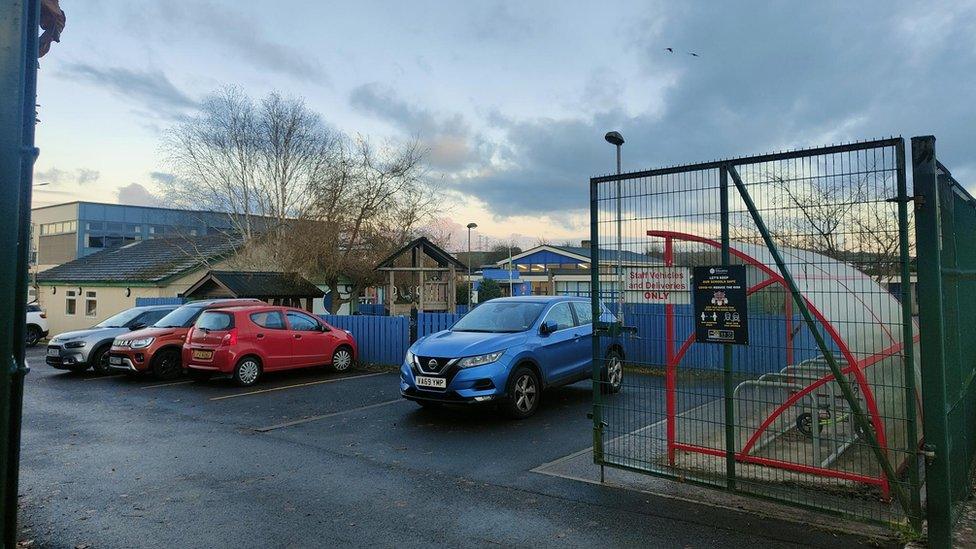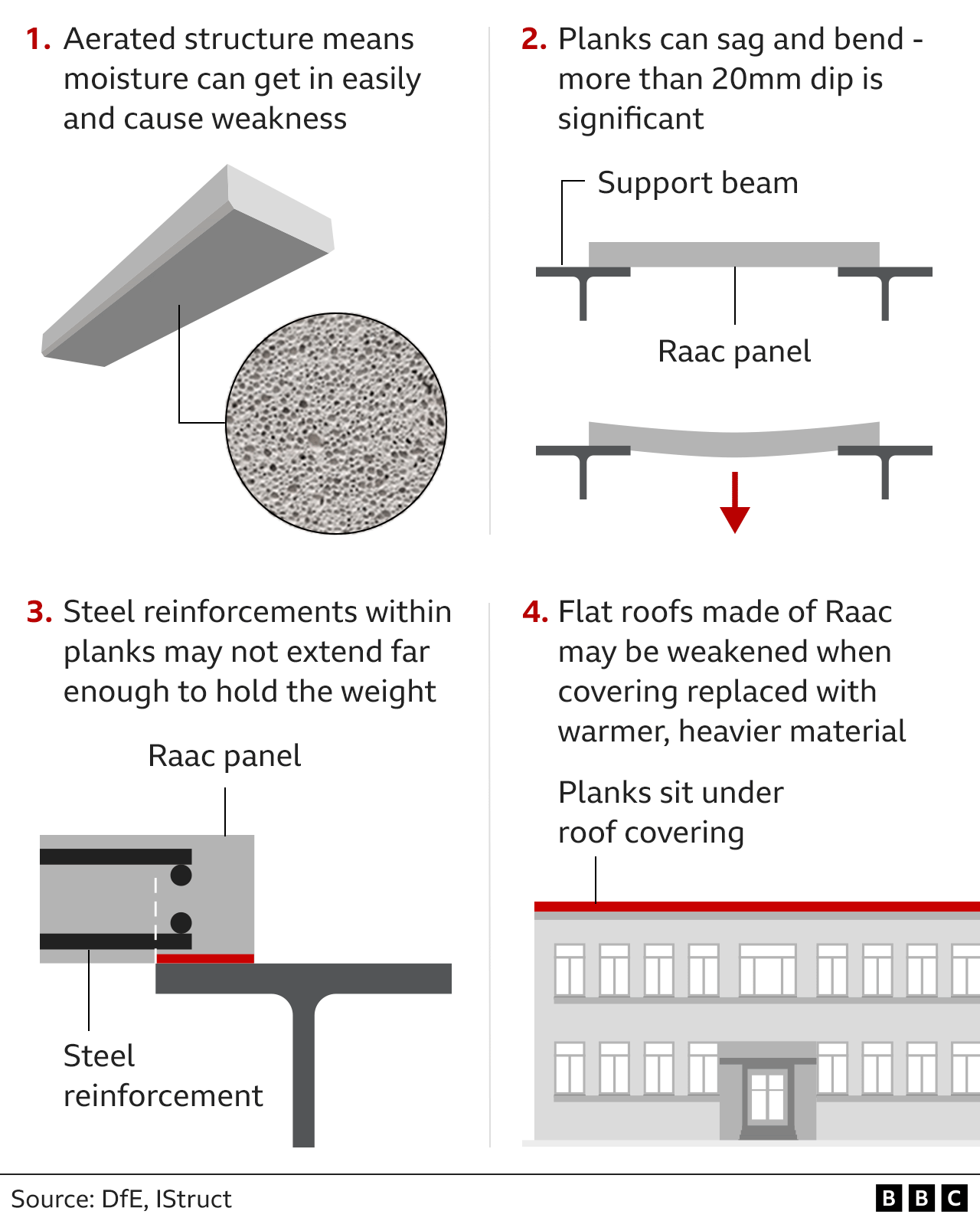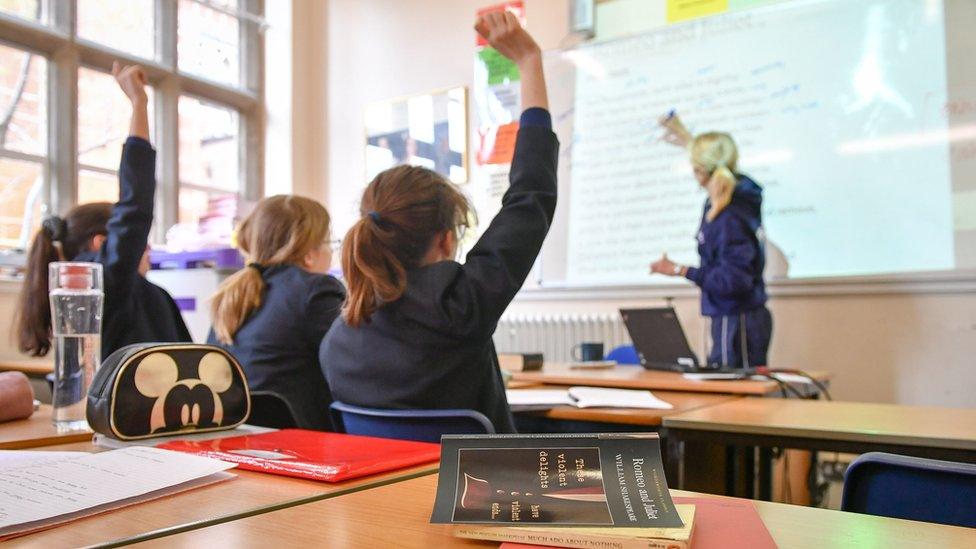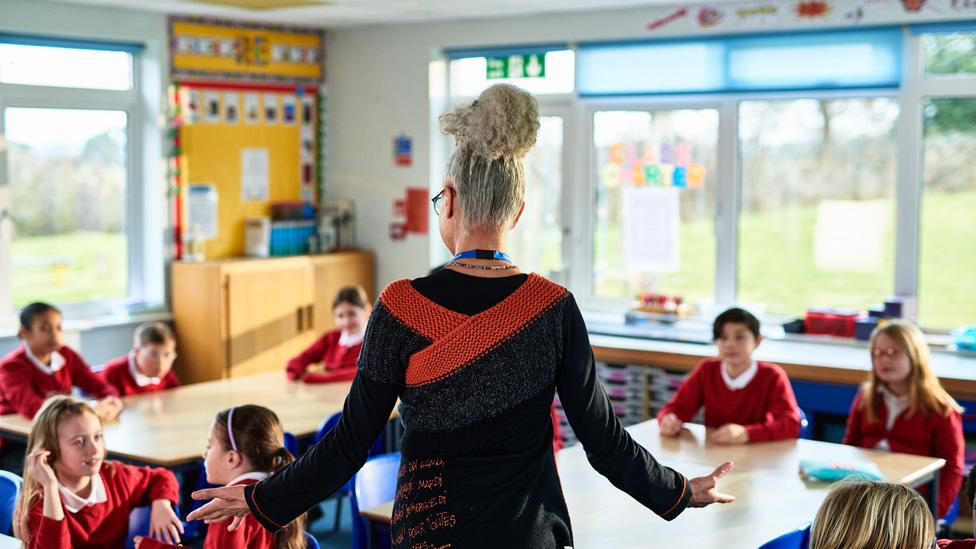Crumbling concrete: First case of Raac found in Northern Ireland
- Published

Cairnshill Primary School has been found to contain crumbling concrete
Collapse-prone concrete has been found at a south Belfast primary school.
Reinforced autoclaved aerated concrete (Raac) has been found in more than 170 schools and colleges in England.
However, initial surveys had not found any traces in schools in Northern Ireland.
The Department of Education (DE) said engineers confirmed Raac was found in an eight-classroom block at Cairnshill Primary School, which had been deemed "unsafe for continued use".
Children in some classes of P4, P5 and P6 have been affected and their parents have been informed.
They will not be able to return to school for the rest of the week, the school's principal Joanne Currie said in a letter to parents.
"We have been assured that the remainder of the building is completely safe and no other areas of the school have been affected," Mrs Currie said.
She added that another update would be given on Friday.
Angie, who has children at the school, said her first reaction upon being informed was of concern for staff and students.
"It's a little worrying that it's been there but I absolutely trust that the school has taken action as soon as they've become aware of it," she told the BBC's Good Morning Ulster programme.
"I trust our school implicitly and I'm really reassured that they are doing all they can," she added.
'Concerning'
Claire Hanna, MP for Belfast South, described the discovery as concerning.
The classrooms in the school have been closed and evacuated to protect children and staff, she said.
"This is exactly the right approach as we learn more about the risks to these sites," she added.
"We need to deal with this at pace to ensure that there is minimal interruption to the education of these kids."
Watch: How RAAC concrete can crumble under pressure
The DE's top civil servant Mark Browne said the safety of teachers, staff and pupils in schools was the highest priority.
"We fully understand that this news will be concerning for staff, parents/carers and the wider school community," he said.
Mr Browne said the department and the Education Authority were working with the school to ensure classes affected could return as soon as possible.
DE would provide funding for all work required, he confirmed, and said the school would contact parents and carers about arrangements.
Speaking to BBC's Evening Extra programme, the president of the National Association of Head Teachers, Liam McGuckin, said it was a terrible situation.
"It's a terrible one and some kids will obviously not be in school tomorrow but I'm sure the Department of Education and the Education Authority will work as quickly as possible to put something in place to help those kids back into school," he said.
Mr McGuckin said the school would need a temporary solution very quickly as the affected block would need to be rebuilt.
NASUWT national official Justin McCamphill said nothing was more important than ensuring the safety of children and staff.
He said officials "must, as a matter of urgency, take all steps to ensure we have a detailed picture of the situation as soon as possible".

What is Raac?
Raac is a lightweight material that was used mostly in flat roofing, but also in floors and walls, between the 1950s and 1990s.
It is a cheaper alternative to standard concrete, is quicker to produce, easier to install and aerated.
However, it is less durable and has a lifespan of around 30 years.
Earlier this year, more than 100 schools in England were told to close buildings made with Raac unless safety measures were put in place just days before the new school year.


Related topics
- Published11 October 2023

- Published19 September 2023
